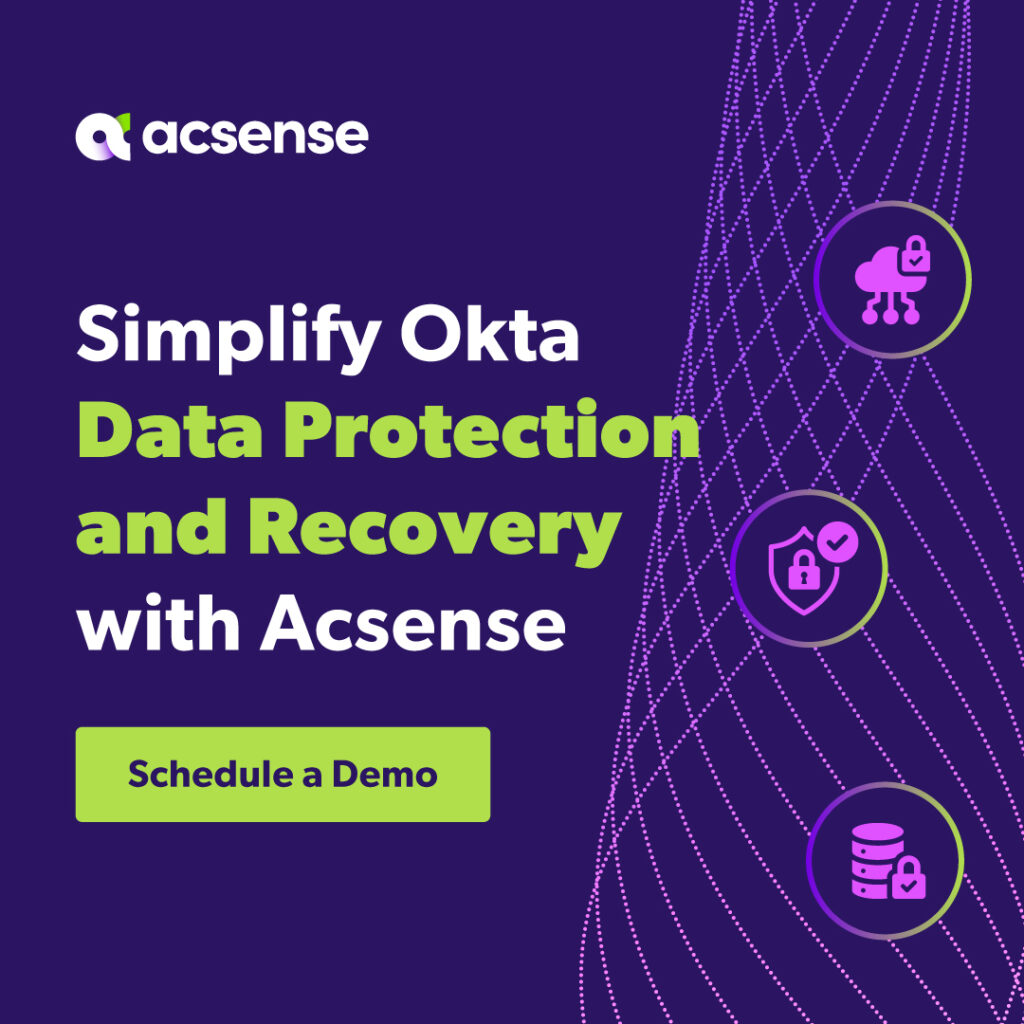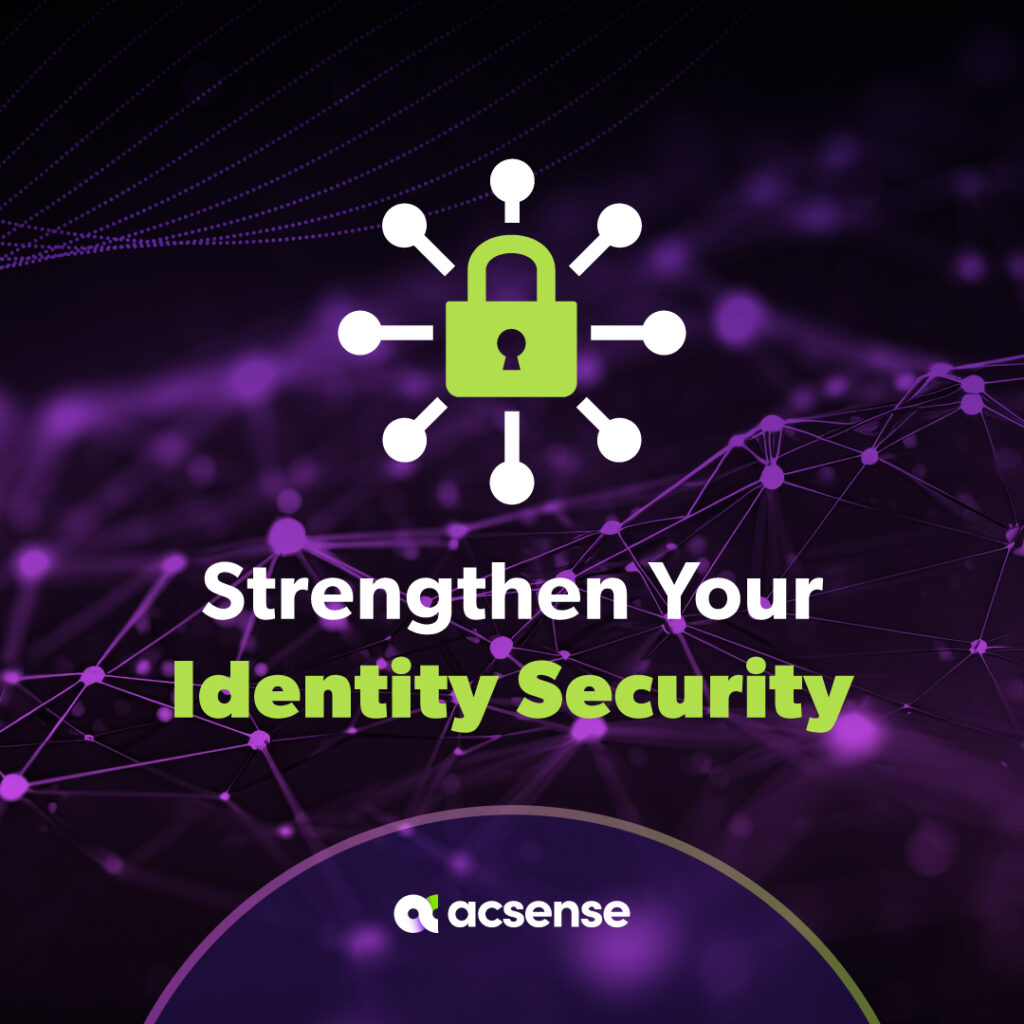IPSIE Explained: How Okta is Revolutionizing Identity Security Practices
In an era where cyber threats loom large, the security of digital identities has never been more critical for enterprises. The rapid digital transformation has necessitated the development of innovative strategies to safeguard sensitive information and ensure secure access across various platforms. As businesses increasingly rely on technology, redefining identity security becomes paramount to protecting both organizational assets and customer trust.
One company leading the charge in this arena is Okta, which has recently unveiled a groundbreaking initiative known as the Identity Security Standard (IPSIE). This comprehensive framework not only addresses current vulnerabilities but also sets a new benchmark for identity security practices in enterprises. By integrating advanced security features and a collaborative approach, Okta’s IPSIE seeks to revolutionize how organizations maintain their identity security posture amidst evolving threats.
In this article, we will unpack the various components of IPSIE, explore Okta’s recent advancements in workforce identity cloud, and highlight how these innovations impact the overall security landscape. From automated remediation techniques to improved disaster recovery processes, we will examine how Okta is reshaping identity security for enterprises, ensuring resilience and fortification against the constantly shifting cybersecurity landscape.
Recent Advancements in Workforce Identity Cloud
Recent innovations at Oktane for the Workforce Identity Cloud introduce unified identity security controls designed to protect employees and essential resources throughout the authentication process. The platform enhances visibility into critical roles, permissions, and resources, allowing organizations to identify and address identity risks effectively. With three out of four security breaches linked to identity-based attacks, robust identity security is paramount.
The Workforce Identity Cloud now enables customers to secure and manage service accounts, such as service, shared, or break-glass accounts, across their SaaS environments. This reduces the identity threat surface and strengthens overall enterprise security. In aligning with security standards established by the IPSIE framework, Okta has developed over 125 integrations with popular enterprise applications.
These advancements highlight the growing importance of identity providers in maintaining a secure identity posture. By incorporating robust identity security measures, including risk signal sharing and session termination, organizations can better protect against unauthorized access and identity-based attacks. This ongoing development in identity security aligns with industry standards, promoting a more secure and user-friendly experience across the entire technology industry.
New Security Enhancements
Okta is leading the charge in forming the Interoperability Profile for Secure Identity in the Enterprise (IPSIE) within the OpenID Foundation. This effort aims to create a unified identity security standard for enterprise applications, resources, and workloads. The IPSIE standard incorporates a secure-by-design approach, integrating security measures from the inception of cloud applications to enhance cybersecurity for both users and businesses. Major companies like Microsoft and Google have committed to this framework, underscoring its potential to standardize identity security across key platforms. With over 125 integrations with popular enterprise applications, Okta ensures these advancements align with IPSIE security standards, making SaaS applications safer and management easier.
Security Before Authentication
Organizations are increasingly aware of the identity breaches that exploit compromised credentials, necessitating proactive security measures before authentication. Okta emphasizes a unified identity security strategy that integrates seamlessly with existing security tools and technology stacks to combat identity threats. New user verification features address risks from social engineering and deep fake attacks, enabling organizations to integrate third-party identity verification providers. The Extended Device Single Sign-On feature simplifies user access by associating identities with devices, reducing the need for repeated authentication while maintaining strong security. The IPSIE framework establishes standardized governance and continuous authentication practices to fortify security even before the authentication process begins.
Secure SaaS Service Account Management
Managing secure SaaS service accounts helps centralize control over shared accounts, mitigating the risks posed by unmanaged SaaS applications. This service includes features like credential rotation and step-up multifactor authentication, ensuring better protection against unauthorized access to sensitive accounts. Security teams can discover and manage non-federated service accounts within the organization’s identity posture, which strengthens security oversight. Available in Early Access as part of Okta Privileged Access in Q4 2024, these features are a pivotal part of Okta’s commitment to enhancing enterprise security via the Workforce Identity Cloud.
Automated Remediation in Identity Security Posture Management
Set for general availability in Q4 2024, Okta’s Identity Security Posture Management introduces automated remediation for critical identity security risks. The solution leverages Okta’s platform to enforce Multi-Factor Authentication (MFA) for vital roles, bolstering overall security efforts. Additionally, automated remediation capabilities will enable the triggering of access certification campaigns in Okta Identity Governance. These measures aim to streamline risk management by automating essential security processes, reinforcing Okta’s dedication to upgrading identity security frameworks for enterprises.
Innovations in Authentication Process
IPSIE, developed through a collaboration between Okta, the OpenID Foundation, and key industry players, is pioneering efforts to standardize identity security in SaaS applications. This initiative incorporates Multi-Factor Authentication (MFA) to enhance user identity verification and mitigate security threats during authentication. By facilitating secure token exchange mechanisms, IPSIE safeguards against token theft, ensuring safe communication between Identity Providers (IDP) and Relying Parties (RP). The framework is designed to allow organizations to tailor authentication processes to specific security requirements and user experience preferences, enhancing flexibility in user login methods. Okta’s commitment to seamless interoperability through IPSIE addresses potential miscommunications and security vulnerabilities in identity management systems, thus improving the user authentication experience.
Advanced Posture Checks
Scheduled for early access in Q1 2025, Advanced Posture Checks enable Okta administrators to assess the security readiness of Windows and MacOS devices before granting application access. These checks guide users through necessary steps to align their devices with security protocols, enhancing organizational security posture through proactive device assessments. This capability underscores Okta’s strategy to strengthen identity security measures across enterprise applications, ensuring compliance and reducing risks associated with unauthorized access.
Extended Device Single Sign-On
Okta’s Extended Device Single Sign-On (SSO) feature, set for release by early 2025, is designed to streamline user authentication across multiple applications. With this feature, users log in once per device, granting them access to applications like Office 365 and Google Workspace without repeated authentication prompts. By refining the multi-factor authentication process, Extended Device SSO maintains robust security while significantly improving user convenience. This addition aligns with Okta’s broader strategy to enhance identity security and verification across cloud application platforms, optimizing the user experience.
Enhancements to the Okta Platform
Okta continues to strengthen its platform by addressing key challenges in identity security. One major initiative is the Secure Identity Assessment (SIA), which focuses on identifying and reducing identity security debt. By pinpointing vulnerabilities and offering tailored remediation plans, Okta helps organizations improve their overall identity infrastructure. Additionally, the company plays a pivotal role in forming the IPSIE working group within the OpenID Foundation. This collaboration seeks to standardize identity management and authentication across software as a service (SaaS) platforms, with high-profile support from industry giants like Microsoft and Capital One. The IPSIE standard, endorsed by Okta, promotes secure-by-default application designs, ensuring applications such as Google Workspace and Microsoft Office 365 meet enhanced security measures.
Secure Identity Integrations
Okta has recently rolled out over 125 new Secure Identity Integrations to enhance security for major SaaS applications. These integrations facilitate the easy adoption of modern Identity Security standards for both Workforce Identity Cloud (WIC) and Customer Identity Cloud (CIC) users. Essential security features like single sign-on (SSO), lifecycle management, identity automation, and complete security posture visibility are supported, significantly reducing the operational burdens on enterprises. By focusing on secure user onboarding and offboarding, these integrations work to prevent unauthorized access and facilitate efficient risk signal sharing. Okta’s approach effectively eliminates the need for custom endpoints by offering out-of-the-box support for leading identity providers, streamlining user account provisioning and deprovisioning.
Improved Disaster Recovery Processes
Okta’s Enhanced Disaster Recovery feature introduces significant advancements in system resilience. Customers can now initiate a failover to a secondary site in less than 5 minutes during a primary site disruption. The expanded disaster recovery capabilities allow customers to test failover processes at any time, thereby enhancing their preparedness and organizational continuity. Scheduled for Early Access by Q1 2025, these features are particularly beneficial for U.S. public-sector organizations, ensuring compliance and better experience management. Okta’s commitment to robust security and operational continuity is evident through these disaster recovery advancements, which fortify the platform’s reliability amidst unforeseen disruptions.
** It’s important to note that this enhancement is specific to Okta’s responsibility. It pertains solely to Okta’s management of its infrastructure and not the customer’s tenant or data. For disaster recovery concerning your specific tenant or data, engaging a third-party vendor would be necessary to ensure complete coverage, as Okta does not extend these capabilities to customer-owned data or tenants. This distinction helps ensure that while Okta’s platform recovery is swift, the full spectrum of disaster recovery for customer environments requires additional vendor support. **

Introduction of the Identity Security Standard – IPSIE
Okta recently announced the Interoperability Profile for Secure Identity in the Enterprise (IPSIE), an open standard aimed at enhancing identity security across SaaS applications. Developed in collaboration with the OpenID Foundation, IPSIE integrates critical technologies like single sign-on, risk signal sharing, and session termination into a cohesive framework. This standard targets the complex challenges of managing identity security in the cloud landscape.
IPSIE enhances governance, entitlement management, and continuous authentication, giving organizations more control over identity risks. More than 50 leading enterprise SaaS applications, including platforms such as Google, Microsoft Office 365, and Slack, have adopted this standard. This initiative aims to create secure-by-default products and fosters an open ecosystem of secure enterprise applications by a dedicated working group including major players like Microsoft and Ping Identity.
Importance of IPSIE in Today’s Security Landscape
IPSIE offers a standardized framework for identity security across enterprise SaaS platforms, enabling seamless integration of essential security protocols like single sign-on (SSO) and multi-factor authentication (MFA). It addresses “identity debt,” which is the accumulation of security risks from disjointed systems that may lead to breaches and compliance issues.
With support from over 50 major SaaS applications, IPSIE enhances interoperability among services, promoting a unified security framework. It simplifies compliance with regulations and audit processes, while empowering businesses with complete visibility into identity threats. This framework facilitates governance over access, user entitlements, and continuous authentication across entire digital environments.
Transformative Impact on Enterprise Security
IPSIE is positioned to transform enterprise security by integrating key identity management capabilities, including single sign-on and risk signal sharing. The framework promotes standardized identity security, easing compliance and reducing integration challenges across diverse technology stacks. Through interoperable standards, businesses can ensure robust security measures regardless of the platforms they utilize.
The standard provides enhanced end-to-end security features such as centralized login, secure user lifecycle management, and privileged access control. IPSIE also enables seamless sharing of security insights across the security ecosystem, enhancing detection and response capabilities for threats effectively.
Collaborative Efforts in Identity Security
Okta spearheads the IPSIE working group within the OpenID Foundation to standardize identity security, fostering an open security ecosystem for enterprise applications. The IPSIE initiative integrates key capabilities like SSO, risk signal sharing, and session termination to boost enterprise application security.
The collaborative effort bridges public-private sector organizations, identity providers, and independent software vendors (ISVs) to standardize identity security. By aggregating standards, IPSIE enables better control over governance, entitlements, and continuous authentication, facilitating comprehensive security insight sharing and a unified security approach across SaaS applications.
Structure and Objectives of the IPSIE Working Group
The IPSIE working group, established by Okta and the OpenID Foundation, includes key players like Microsoft, Ping Identity, and Capital One. Its central objective is to develop an open, industry-wide standard for managing identity security across enterprise applications. This standardization aims to address the complexities of varied security protocols and promote seamless integration of identity management tools.
By fostering a unified framework, the IPSIE initiative seeks to streamline the connection of enterprise SaaS vendors with security protocols, such as Single Sign-On and Multi-Factor Authentication. This effort enhances risk signal sharing, improves security governance, and simplifies user entitlement management, while also advancing continuous authentication processes within enterprises.
Okta’s participation in the IPSIE working group underscores its commitment to eliminating identity security fragmentation, promoting interoperability, and reducing unauthorized access risks. By establishing a common language and secure identity standards, IPSIE aims to bolster the identity security posture and minimize identity threat surfaces. This initiative supports the goal of achieving complete visibility and enhanced user experience across the technology stack of the entire technology industry.
Conclusion: Embracing the Identity = Security Mindset
As organizations increasingly rely on cloud services and SaaS applications, the importance of securing digital identities has never been more paramount. Okta’s advancements, particularly through the IPSIE framework, demonstrate a shift towards a security-first approach in identity management, addressing the evolving challenges of the modern digital landscape. From automation to advanced posture checks, these innovations signal a new era where identity equals security, ensuring businesses are protected from identity-based breaches while maintaining operational continuity.
How Acsense Fits into the New Identity = Security Mindset
At Acsense, we align with this forward-thinking approach by extending security and resilience beyond identity management to ensure your entire IAM system is resilient. While Okta’s innovations strengthen identity security within their ecosystem, we bridge the gap by offering continuous backups, one-click recovery, and seamless disaster recovery tailored specifically for Okta environments. Our platform is built with the same identity-first mindset, ensuring that your Okta tenant isn’t a single point of failure.
Acsense integrates IAM Resilience principles into our solutions, providing organizations with the confidence that they can recover from disruptions quickly and maintain business continuity. Whether it’s automated recovery for your Okta tenant or ensuring compliance with regulatory demands, Acsense is the critical layer of protection that works alongside identity security measures like IPSIE to provide full-spectrum resilience.
By combining Okta’s advanced identity controls with Acsense’s IAM resilience platform, enterprises can fortify their defenses, reduce downtime, and focus on what matters most: driving business forward in an increasingly complex and interconnected world.
Connect with us to learn more, https://acsense.com/contact-us

